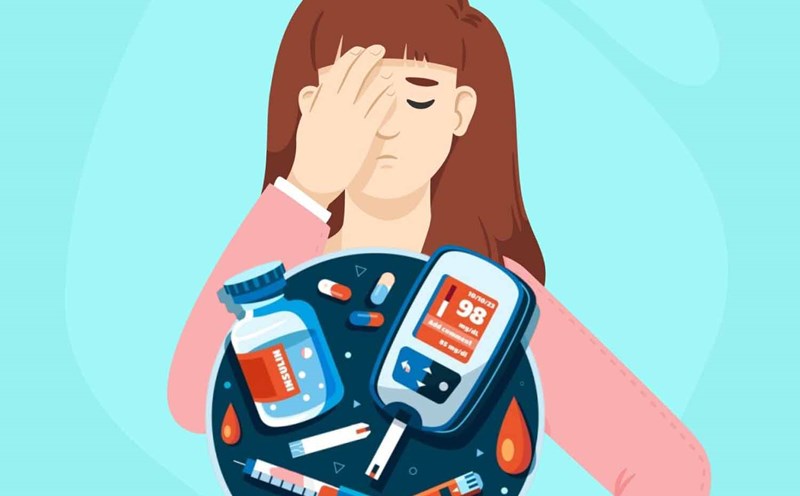According to Dr. Shrey Kumar Srivastav, Senior Consultant and Physician at Sharda Hospital (India), diabetes not only affects blood sugar levels but also increases the risk of serious cardiovascular diseases such as high blood pressure, atherosclerosis, stroke and heart attack. Therefore, caring for the cardiovascular system is a vital factor for people with diabetes. Here are ways to help protect your heart.
Control stable blood sugar
High blood sugar over the long term can damage blood vessels and the nervous system that controls the heart. Patients need to monitor blood sugar regularly and maintain it within the target level set by the doctor. A balanced diet, regular exercise and proper medication will help control blood sugar levels well.
Eat healthy for the heart
Diet plays an important role in controlling both diabetes and heart health. Here are some nutritional recommendations:
Increased: Leafy greens, broccoli, berries, whole grains (barley, quinoa, whole-wheat phien), healthy fats ( avocado, nuts, olive oil), lean protein (chicken, fatty fish such as salmon, beans, tofu).
Limitations: saturated fats, trans fats, and refined sugar are factors that can increase cholesterol and cause inflammation of blood vessels.
Exercise regularly
Exercise helps increase insulin sensitivity, lose weight and improve cardiovascular function. You should try to get at least 150 minutes of physical activity per week with exercises such as brisk walking, cycling, swimming or yoga. Before starting a new exercise program, consult your doctor to ensure safety.
Stop smoking and limit alcohol
Cigarettes and alcohol are two factors that double the risk of heart disease in people with diabetes. Quitting smoking not only helps reduce blood pressure and cholesterol but also improves blood circulation. Drinking alcohol should be limited, or preferably a full diet, especially if you are taking medication.
Manage stress
Prolonged stress can cause high blood pressure and fluctuations in blood sugar. Try stress-reducing measures such as meditation, deep breathing, listening to relaxing music, or chatting with relatives. Adequate and quality sleep also plays an important role in keeping the heart healthy.
Regular check-ups with doctors
People with diabetes should have regular health check-ups to detect early signs of cardiovascular damage. The doctor may require blood tests, electrocardiogram (ECG), ultrasound, or ABI measurement to assess cardiovascular risk.











